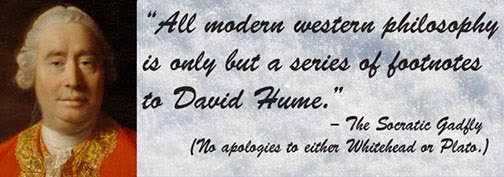I first said that the Dalai Lama himself, despite his self-purportation to being open to the findings of science, said he would never surrender a belief in either karma or reincarnation. I noted the linking of the two beliefs as further attestation that Buddhism in general, and also karma in specific, was about metaphysics.
He claimed karma was a physical law specifically encompassing things like cutting a neighbor's lawn, and the grass is shorter as a result.
I then said Hinduism back in the Gita, the Hinduism from which Buddhism evolved, already believed in karma as metaphysical and linked to reincarnation.
I then posted a Wiki link specifically to karma in Buddhism, including a reference to how this doctrine, in metaphysical understanding, goes back to the reported teachings of the Buddha himself:
The Buddha most often spoke of karma as the determining factor of the realm of one's subsequent rebirth--for this reason karma is often explained in tandem with rebirth and cosmology. The Cūlakammavibhanga Sutta ("The Shorter Exposition of Action," Majjhima Nikaya 3.203) is devoted to describing the various rebirths that various kinds of actions produce; negative actions such as killing lead to rebirths in the lower realms such as hell, and virtuous action such as gracious behavior under duress leads to rebirth in the human or other higher realms.At that point he said, in a semi-direct quote, "I've actually studied Buddhism; you're just posting a Wiki link." (He ignored that three-four e-mail chains prior, he had posted a Wiki link himself.)
Of course, that said, Buddhism has the combination of illogic and moral offensiveness to believe in reincarnation without the existence of a "metaphysical self." In fact, it's this pernicious combination that leads me to label Buddhism as more offensive, in some ways, than fundamentalist Christianity. (That said, the Buddha didn't deny that that whatever was reincarnated in the new life had some connection with the "personhood" of the old life.)
On the illogic side, if you try to wrestle more fully with what Buddhism, and allegedly the Buddha, meant by "not-self," you see just how logically full of crap he and his religion were and are.
On the morals side, the belief that an impersonal non-"metaphysical" self is not reincarnated, that a quasi-impersonal life force is all that goes to a new person, but that that new person is punished for deeds of a past life to which he/she is not connected, and about which he/she has no memory, is more morally offensive in some ways than a Christian fundamentalism belief in eternal hell for people who haven't heard of Christianity.
And, it only gets worse. Some schools of Buddhism even go so far as to, along the lines of collective guilt, to believe in "collective karma."
Unfortunately, not only do the Sam Harrises of New (and Old) Atheism distort and deny what Buddhism actually means, they peddle a bill of goods about what it is that's about as bad as New Agers' own bill of goods about Buddhism.
As to more specifically how Sam Harris is wrong?
The following is excerpted from my Amazon review of his "The End of Faith":
Harris, in his last chapter, claims that mediation and “spiritual” practices **as taught under the aegis of Eastern religion** (one can meditate using the Western scientific tool of biofeedback also, etc.) is “not a statement of metaphysics.” (I have in the past, through self-hypnosis, gone “deep” enough to see the mandala-like spirals that come right before the tunnel of white light, showing that one can meditate deeply without any “spiritual” program whatsoever.) Harris also ignores here the fact that “mystical” traditions in the West, through the vehicle of Gnosticism, had far more social penetrating power than he will admit.
In short, his final chapter is about setting Buddhist and other spirituality on a pedestal, undermining the title of his book,
Sam, if you claim that meditation has to really come from an Eastern “spiritual” discipline, instead of biofeedback, self-hypnosis or other non-“spiritual” tools, that’s a faith statement. Pure and simple.
Note this quote on page 221: “Mysticism is a rational enterprise.” Would that include “sky-clad” Jains who deliberately starve themselves to death rather than risk swallowing even a microbe? ...
And that was without Harris’ incredible credulity on the existence of psychic phenomena and even reincarnation.
I refer to footnote 18, page 45. Here, Harris credits Rupert Sheldrake and Dean Radin as being credible writers on the subject of psi phenomena. Any credible skeptic knows that ain’t so.
He then goes on to say, “There may even be some credible evidence for reincarnation.”
So, how does Harris try to get away with claiming that, ultimately, Buddhism is just a psychology?
In "Killing the Buddha" (PDF), he cheats. He claims that Buddhist meditiation (which he, wrongly, considers the core of Buddhism) should be separated from Buddhist religion.
Now, is meditation de facto religious? Of course not. But, Buddhist meditation is ultimately meditation on Buddhist religious concepts. It's religious, indeed.
For more "problematic" quotes of Harris', see Wiki.
For more on his problematic beliefs, go to Skeptic's Dictionary. (I'm the complaining reader, and, yes, technically Harris is an atheist; I made a category confusion mistake on that. A skeptic, though, he is not.)
For more on his uncritical belief in Buddhism, go here, near the bottom of the webpage, about 3/4 the way down.
So, you skeptics and New Atheists who "heart" Sam Harris? Get a clue.
(Sidebar update: Buddhism IS a religion.
Religion is about:
Metaphysical matters of ultimate concern, within a social group setting; and
How one orients oneself within that group to a better relationship to these metaphysical matters of ultimate concern.)
